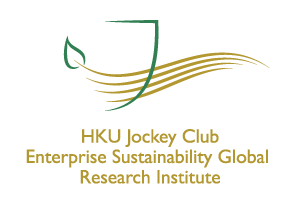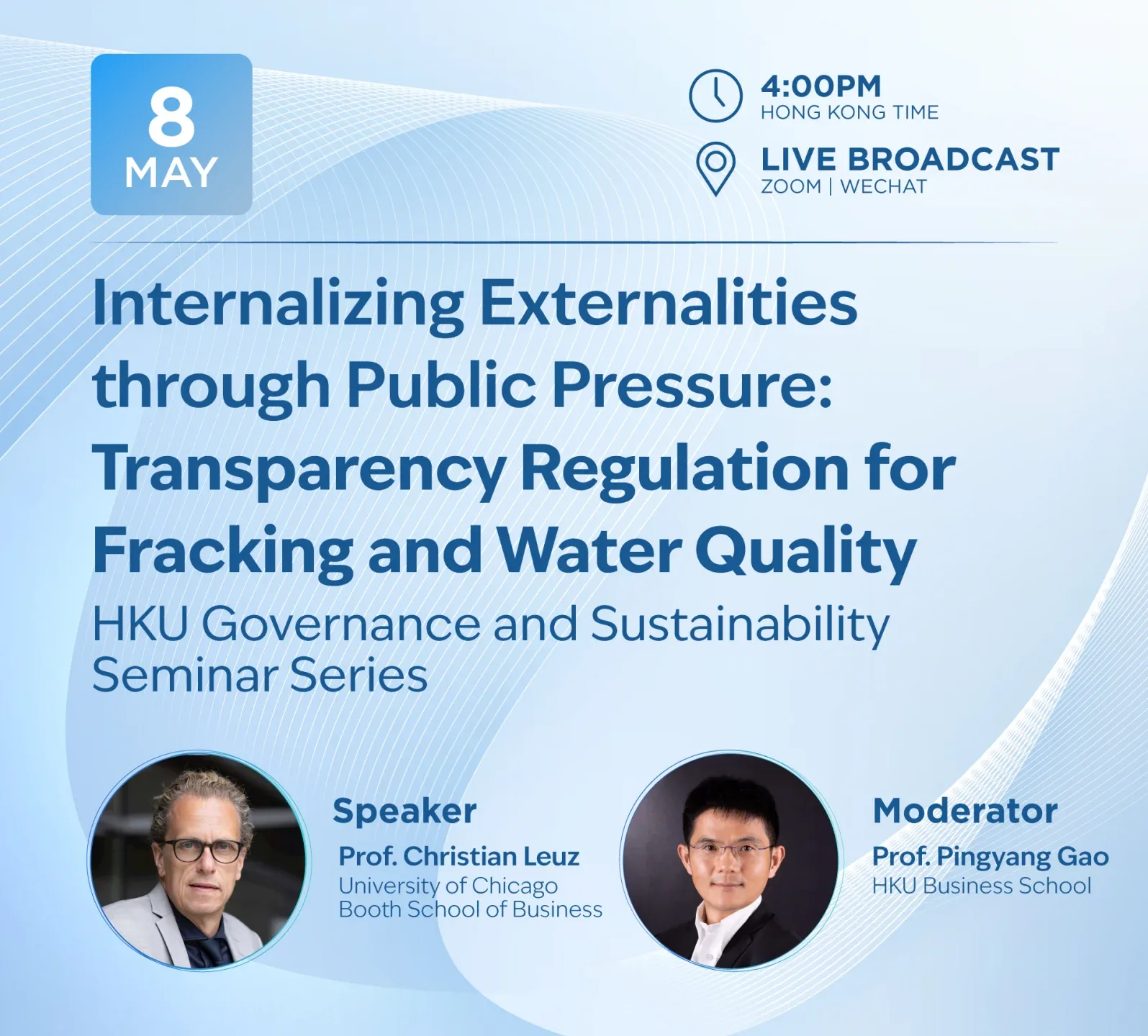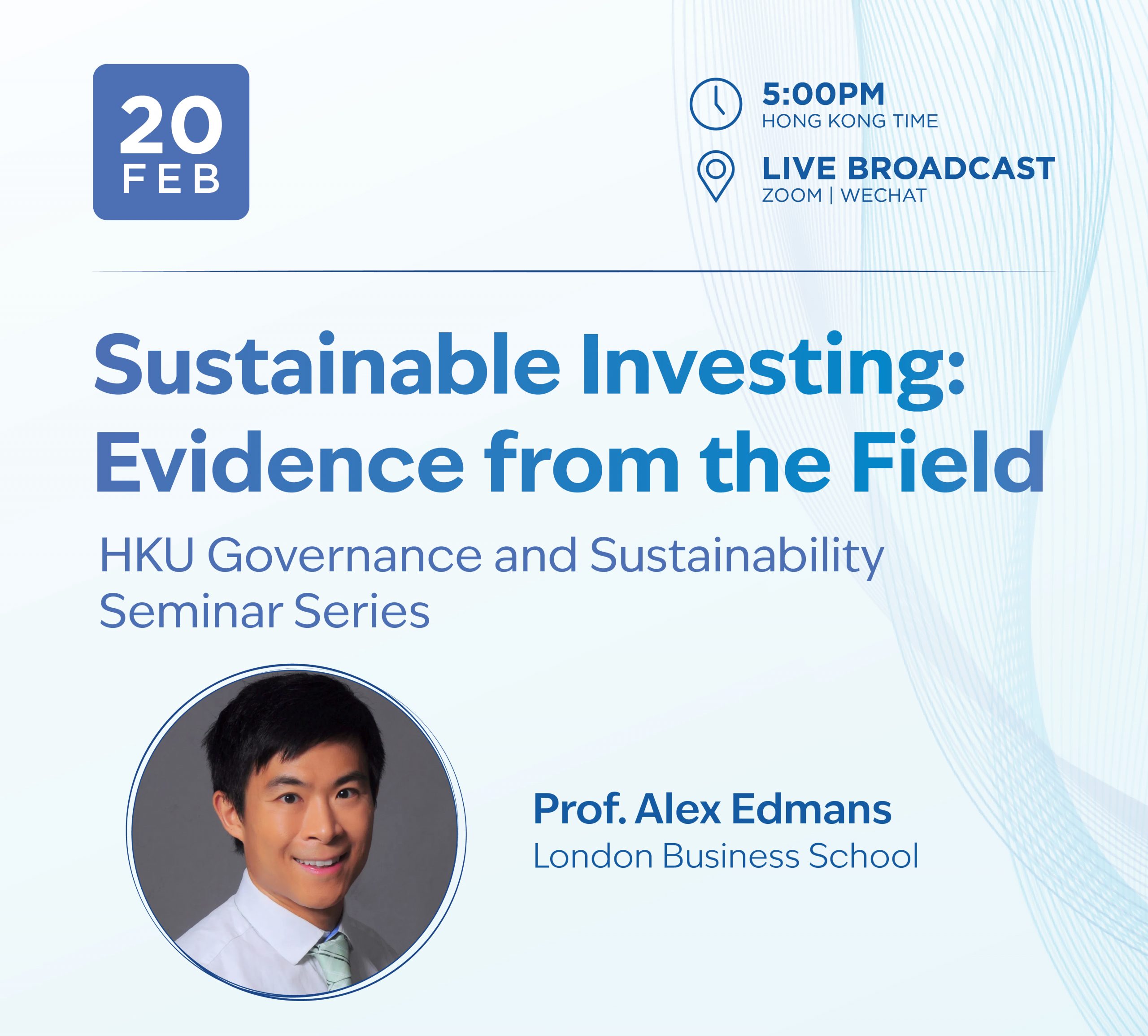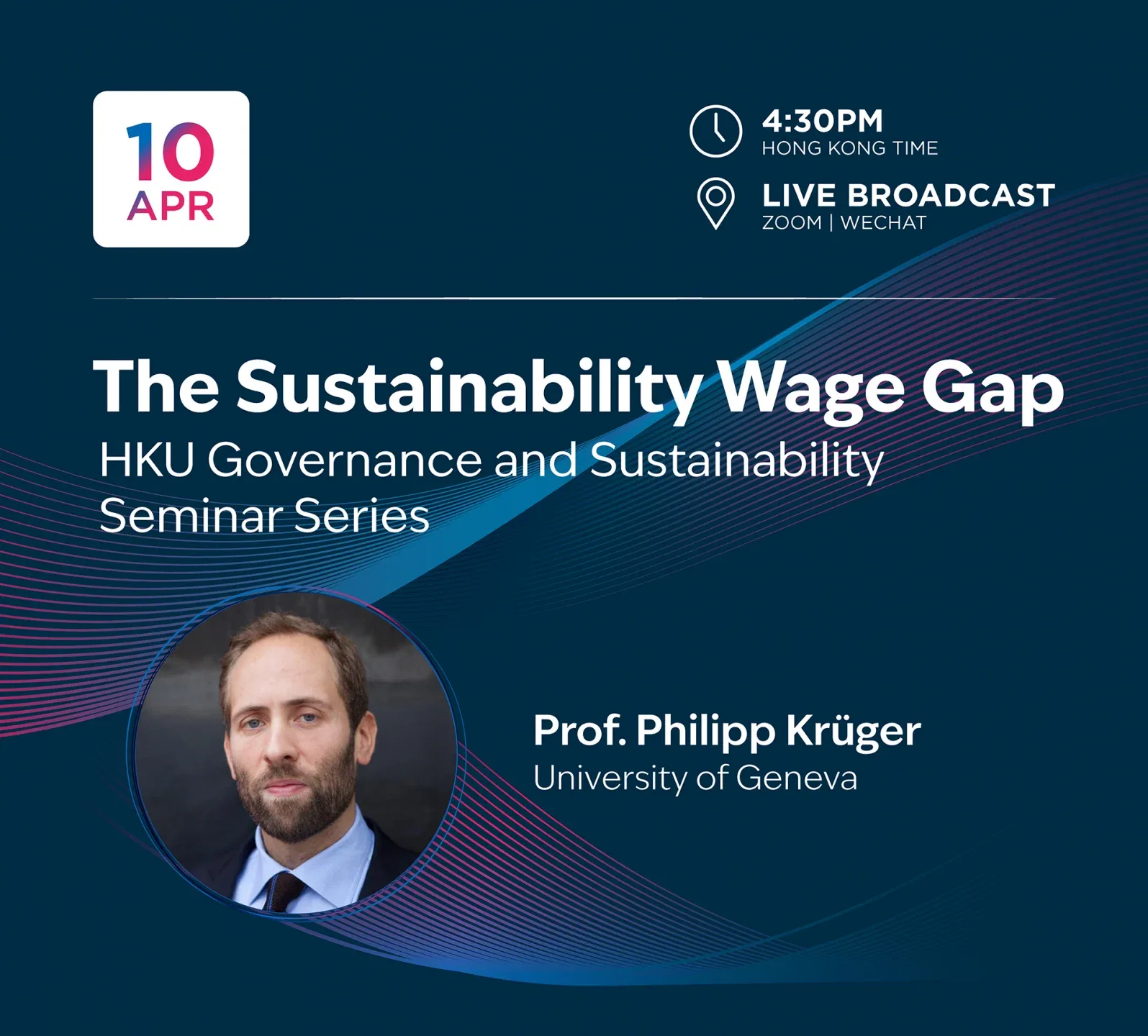
HKU Jockey Club Enterprise Sustainability Global Research Institute
World-Class Hub for Sustainability
HKU Governance and Sustainability Seminar Series


HKU Governance and Sustainability Seminar is organized by HKU Jockey Club Enterprise Sustainability Global Research Institute, a series of virtual seminars featuring prominent speakers discussing governance, environmental, and social topics.
Semniars
Past Event

- 8 May 2025
- Online
Prof. Christian Leuz
Internalizing Externalities through Public Pressure:
Transparency Regulation for Fracking and Water Quality
Past Event

- 20 Feb 2025
- Online
Prof. Alex Edmans
Sustainable Investing:
Evidence From the Field

